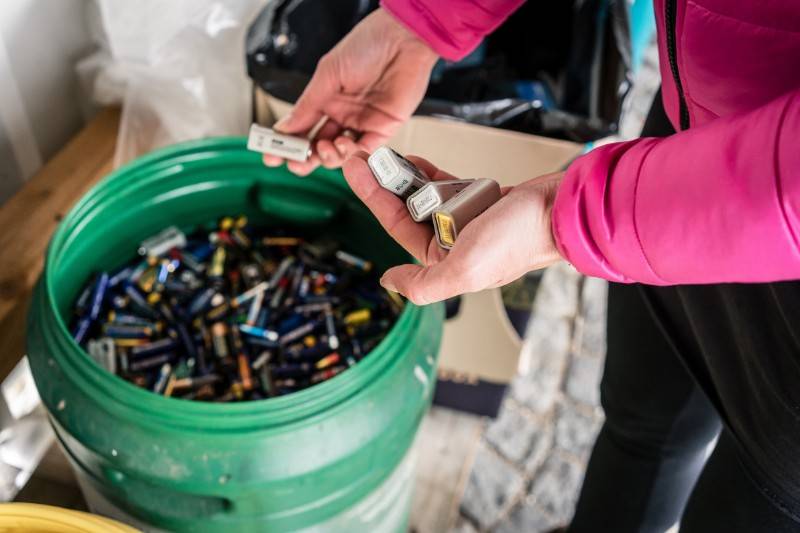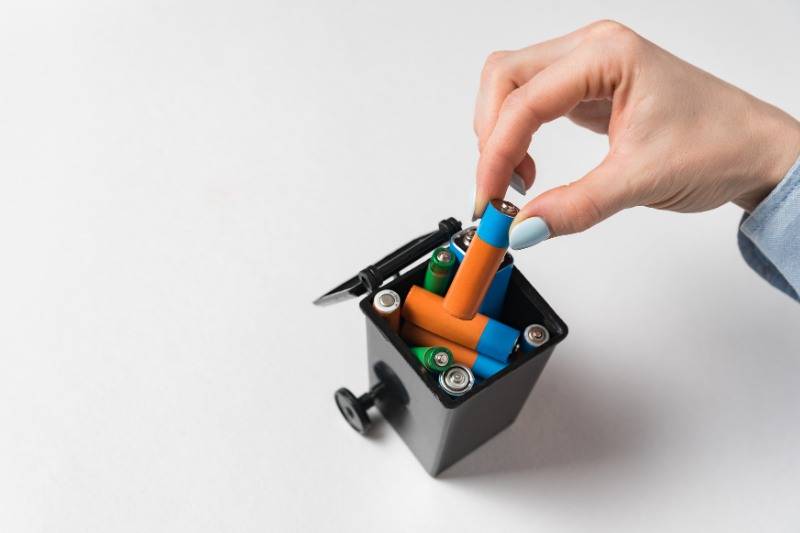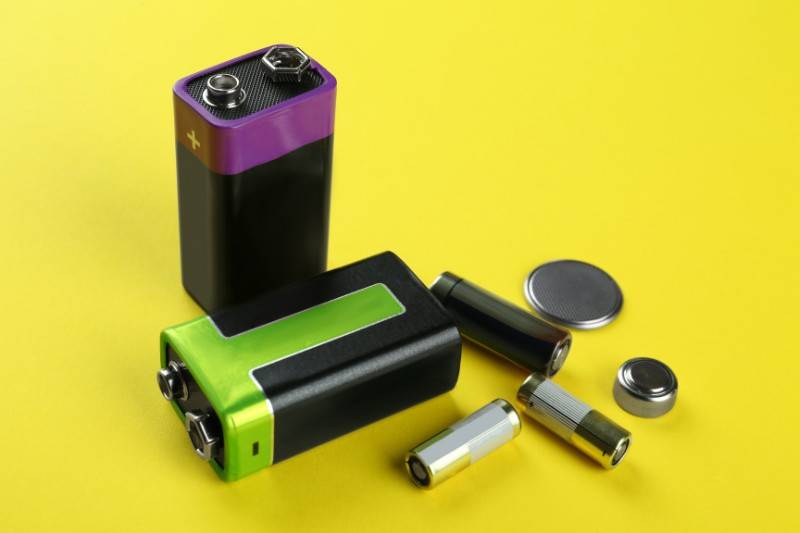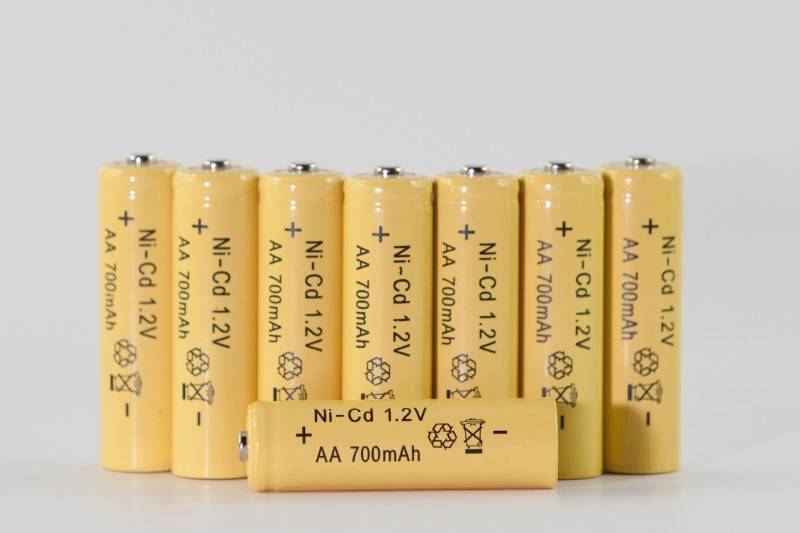Every battery counts! Uncover the secrets of battery recycling and why it matters more than you think. Are you ready to make a difference?

In today's tech-driven age, batteries have nestled themselves into nearly every nook and cranny of our daily lives. From the phones we chat on, to the laptops we work with, and even the electric vehicles some of us drive, batteries power our modern conveniences.
But here's a thought I often find myself pondering on: what happens when these batteries die out?
The importance of recycling becomes clear when we consider the consequences. Batteries left unchecked can become hazardous waste.
And not just that, many states have laws about proper battery disposal. It's not just about being eco-friendly; it's about adhering to legal guidelines, too.
Now, I've heard this question from friends time and again: "Are batteries even recyclable?" The answer is yes.
However, the recycling rates for different battery types vary.
For example, nickel-cadmium and nickel-metal hydride batteries have an estimated recycling rate of 50-60%. On the other hand, lithium-ion batteries, which are frequently used in electronic devices, have a significantly lower recycling rate, estimated to be about 5%.
But the 'how' is what makes the difference, and that's what I'm here to share with you today.
Why Should You Bother Recycling Batteries?
I get it.
You might be skeptical about the whole recycling movement, especially when it comes to something as small as batteries.
Yet, the reasons for recycling batteries are as vast as they are compelling.
First, the safety concern is real.
I've come across instances where improperly disposed batteries led to fires or even explosions. By chucking them in the bin, you're not only risking your own safety but also that of the sanitation workers handling your waste.
Confused about which batteries to recycle?
Even if some local laws seem lenient on batteries like alkaline or carbon-zinc, I always recommend recycling. It avoids the headache of distinguishing battery types and prevents unintentional harm.
Because, believe me, mistakes happen!
Batteries discarded in landfills can release toxic chemicals, contaminating local soil and water.
Let’s crunch some numbers.
In 2018 alone, about 2.5 million tons of nonferrous metals, commonly used in batteries, ended up in landfills. Among them, 1.7 million tons were just lead in the batteries.
This disparity hurts both the environment and us consumers. Limited metal supplies can spike electronics prices.
Plus, the metal mining industry is notorious for its environmental and human rights violations. I've seen reports linking it to numerous harmful impacts, from toxic releases to troubling human rights scenarios.
States like California categorize discarded batteries as hazardous and ban them from being thrown in the trash. They offer myriad recycling resources, from local drop-offs to mail-in services.
However, the environmental logic remains consistent irrespective of the state’s laws. Most batteries hold heavy metals like cobalt and nickel, which can pollute our environment when discarded carelessly. And considering a mere 10% of the 3 billion batteries bought annually in the U.S. are recycled, there's a dire need to act.
Yet, the good news is that recycling metals consumes way less energy than mining.
Consider the global impact.
Around 50% of the world’s raw cobalt, essential for many batteries, hails from places with significant social and environmental concerns. By recycling, we can solve some of these issues.
Where to Recycle Batteries?
Finding Battery Drop-Off Facilities
Finding drop-off locations for battery recycling is not that hard these days.
Both municipalities and private entities are stepping up, providing spaces where you can safely hand over your used batteries.
Some might offer this service for free, while others could ask for a small fee, especially if you're offloading a larger batch.
One of the easiest options out there is to use Green Directory from GreenCitizen. All you need to do is enter the item name (in this case, battery) and your location. Once you hit enter, the directory will offer a list of all nearby battery recycling points. It pinpoints various recycling centers around you. It's a nifty tool, especially when I have a mix of batteries to discard.
Another convenient option is — Call2Recycle Locator. You can streamline your search depending on the battery type, from single-use to e-bike batteries. What I appreciate about it is its comprehensive database of both public and private collectors.
I recently found out about Greener Gadgets. Beyond just batteries, it caters to various e-waste categories. Handy if you're looking to dispose of a broader range of electronics. But a heads up—always double-check if they cater to your specific battery type. From experience, a few recyclers might accept devices with batteries but not standalone batteries.
Finally, a word of advice: always ring up your chosen drop-off point.
Websites might not always be updated in real time. Plus, some centers have unique prep requirements for batteries, be it sorting them based on their chemical makeup or bagging them up.
Being prepared just smoothens the whole process.
Mailing In Your Dead Batteries
I've always believed in convenience, especially when it comes to sustainability. If you're like me who favor the mail-in approach, there are some great options out there.
I’ve seen a common trend among these battery recycling solutions.
In most cases, they’ll sell you a recycling package. Basically, you’ll put dead batteries in these boxes, and once they’re full, you can mail them back.
Cirba Solutions is the industry leader in battery recycling.
Previously, Big Green Box from Retriev Technologies and Battery Solutions were my favorite options. Now, these two companies, along with sixty others, have merged together and offering battery recycling options.
By the way, you should contact the recyclers beforehand and discuss the packaging instructions with them. You need to ensure the batteries don’t catch fire or cause any accidents.
How to Recycle Different Types of Batteries
From our household gadgets to industrial tools to our cars, batteries power a significant chunk of our daily lives. However, they're not a one-size-fits-all deal. Different devices require different battery types, each with unique chemical components and recycling processes.
The world of batteries is diverse, from the metals and chemicals they house to their varying lifespans.
We can primarily classify them based on their contents, which include elements like mercury, lead, cadmium, nickel, and silver.
Interestingly, some minerals, like cobalt, lithium, and graphite, are flagged as critical minerals by the United States Geological Survey. Their high supply risk makes them invaluable to the nation's recycling centers.
The battery recycling process incorporates a metal reclamation step. Here, batteries are sorted, shredded, melted, and eventually, the metals are retracted.
However, different recycling centers might go for different steps, depending on the recycling machines and facilities they have.
Single-Use Battery Recycling
Alkaline batteries, like AA, AAA, C, and D, are among the most commonly used in household items.
Back in the 90s, mercury was the main component of single-use batteries. As you know, mercury is a highly toxic element and can cause serious health damage to your body. But thanks to the Mercury-Containing and Rechargeable Battery Management Act, passed in 1996, mercury had to go away.
Nowadays, you’ll mainly find common alkaline batteries (like AA or AAA) inside of your remotes and toys. These are concoctions of steel, zinc, manganese, potassium, graphite, paper, and plastic in them.
Guess what?
These are completely recyclable. So are the disc batteries that are mainly made of zinc.
While many curbside recycling programs don’t accept alkaline batteries, several specialized recycling centers do. It's essential to check local guidelines to ascertain the recyclability of alkaline batteries in your area.
Lithium-ion Battery Recycling
Okay, now let’s talk about the most important one: lithium batteries. You know, the ones are inside of our phones and laptops.
However, their popularity warrants safe recycling practices. Lithium-ion batteries pose potential fire risks if improperly discarded, making recycling crucial.
They have stricter recycling rules, and you’ll definitely need special recycling facilities that can handle the task.
Also, you should note that lithium batteries are a treasure trove of valuable materials. This is the main reason why recyclers are mainly looking for lithium batteries for recycling.
Recycling locations for lithium-ion batteries often include electronics retailers, specialized recycling centers, and certain curbside recycling programs. Always ensure the batteries are stored safely, avoiding punctures or exposure to high temperatures.
Nickel-Cadmium Batteries and others
Nickel-cadmium (NiCd) batteries, once popular in various devices, are now less common due to environmental concerns.
Cadmium, a toxic heavy metal, can pose environmental hazards if not disposed of correctly. However, they're still found in some older devices and specific applications where their durability shines.
Common items with Nickel-Cadmium Batteries:
- Cordless power tools
- Emergency lighting systems
- Medical equipment
- Certain cameras
When it comes to recycling, it's crucial to ensure Nickel-Cadmium batteries are treated separately, given their toxic nature. Many regions classify them as hazardous waste, requiring specialized recycling processes.
Dedicated drop-off centers and mail-in programs are the most common recycling methods.
What NOT to Do With Old Batteries
The convenience of batteries is undeniable.
They power our gadgets, toys, and many everyday devices. But as they reach the end of their life cycle, improper disposal can have serious environmental repercussions.
Let's debunk some common misconceptions and mistakes:
Tossing Them in Regular Trash
Perhaps the most frequent blunder, tossing batteries into your regular garbage bin can lead to disastrous consequences. Batteries contain chemicals and heavy metals that can leak and contaminate the soil, air, and water, posing risks to both the environment and human health.
Storing Dead Batteries Indefinitely
Keeping old batteries in that "junk drawer" isn't just a space-waster; it's also a safety hazard. Over time, corroded batteries can leak, and in the case of lithium-ion batteries, even pose a fire risk.
Attempting to Recharge Non-Rechargeable Batteries
It might sound tempting to try and squeeze a bit more life out of that non-rechargeable battery, but doing so can be dangerous. Recharging batteries not designed for it can result in leaks or explosions.
Throwing in Open Fires
Batteries, especially lithium-ion ones, can explode when exposed to high temperatures. Tossing them into a fire can release toxic fumes and result in explosions, causing injuries and environmental harm.
Assuming All Batteries are the Same
Just because two batteries look similar doesn't mean they have the same chemical composition or recycling method. Mixing different battery types or improperly disposing of a particular kind can lead to chemical reactions and hazards.
Final Thoughts: Be Responsible with Battery Recycling
Every battery we toss impacts our Earth.
Yet, with mindful recycling, we can turn potential hazards into eco-friendly solutions. Your small act of recycling doesn't just benefit the environment, but it paves a safer path for future generations.
So, spread the word. Encourage your friends, family, and colleagues.
After all, change begins with one responsible choice. Let that choice be battery recycling.









It’s on point of fact – a nice and helpful piece of information. I’m
glad that you just shared this useful info with us. Please stay us up to date like
this. Thanks for sharing.
I similar to this blog a whole lot, saved to favorites .
It’s an remarkable article designed for all the web users; they will obtain advantage from it I am sure.